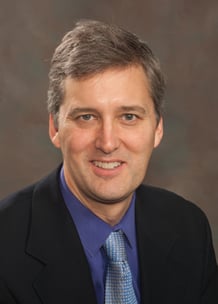Celebrated bioethicist Arthur Caplan, author of a landmark book, `When Medicine Went Mad: Bioethics and The Holocaust,’ will visit Denver and Aurora next month to discuss the medical legacy of the Nazis and how today’s overheated political rhetoric often features comparisons to Hitler’s Germany.
Caplan will deliver two lectures on Monday, May 2, one on the University of Colorado Anschutz Medical Campus in Aurora and the other at the Wolf Theater in Denver.
The visit is sponsored by the CU Anschutz Center for Bioethics and Humanities as part of its Holocaust Genocide and Contemporary Bioethics (HGCB) program.
 Dr. Matthew Wynia, director of the Center for Bioethics and Humanities at CU Anschutz.
Dr. Matthew Wynia, director of the Center for Bioethics and Humanities at CU Anschutz.
Caplan, a well-known commentator on health care ethics, writes a regular column for NBC.com and, according to The Hollywood Reporter, is the inspiration for a CBS TV pilot called `Austen’s Razor,’ about a “brilliant bioethicist who is called in at crisis moments to solve the most complicated, dynamic and confounding medical issues imaginable.”
His Denver lecture entitled, `The Use and Misuse of the Nazi Analogy in American Politics,’ will focus on the intended and unintended consequences of the increasingly common comparison of today’s politicians and political ideas to the Nazis. Is this ever appropriate? And when do such analogies simply shut down dialogue? Caplan is expected to address these and other questions during the lecture on Monday, May 2 at 7:00 p.m. at the Wolf Theater at 350 Dahlia St. in Denver.
He will also give a talk on Monday, May 2 at 12 noon at the CU Anschutz Fulginiti Pavilion for Bioethics and Humanities at 13080 E 19th Avenue in Aurora.
The Anschutz Campus lecture will focus on the legacy of the Holocaust and its impact on medical research ethics. It will include a panel discussion on why this legacy is not part of the curriculum at most health professional schools.
“Health professionals have special responsibilities to remember and to remain vigilant, because of the roles our respective disciplines played in creating and carrying out the Holocaust,” said Matthew Wynia, MD, director of the Center for Bioethics and Humanities at CU Anschutz.
This program builds on Wynia’s work with the United States Holocaust Memorial Museum when he headed the Institute for Ethics at the American Medical Association in Chicago.
“While working with some incredibly knowledgeable museum staff, I learned how important the legacy of health professional involvement in the Holocaust is to modern medicine, and why remembrance must be a shared responsibility of all health professionals,” he said.
This year’s HGCB program also includes a gallery exhibit of `The Holocaust Series’ paintings by Geoffrey Laurence, entitled `ISWASWILLBE.’ The exhibit, co-sponsored by Denver’s Mizel Museum, opened April 3 and will run through August 4. The gallery is inside the CU Anschutz Fulginiti Pavilion at 13080 E 19th Avenue in Aurora.
The HGCB program began with a gift from Dr. William S. Silvers.
“The tragic fact of health professional involvement in the Holocaust has affected every aspect of modern bioethics,” he said. “Our program aims to build bridges and create collaborations to ensure these lessons are never forgotten.”
Both the CU Anschutz and Wolf Theater lectures are free and open to the public, though pre-registration is requested on the Center for Bioethics website at www.ColoradoBioethics.org.
